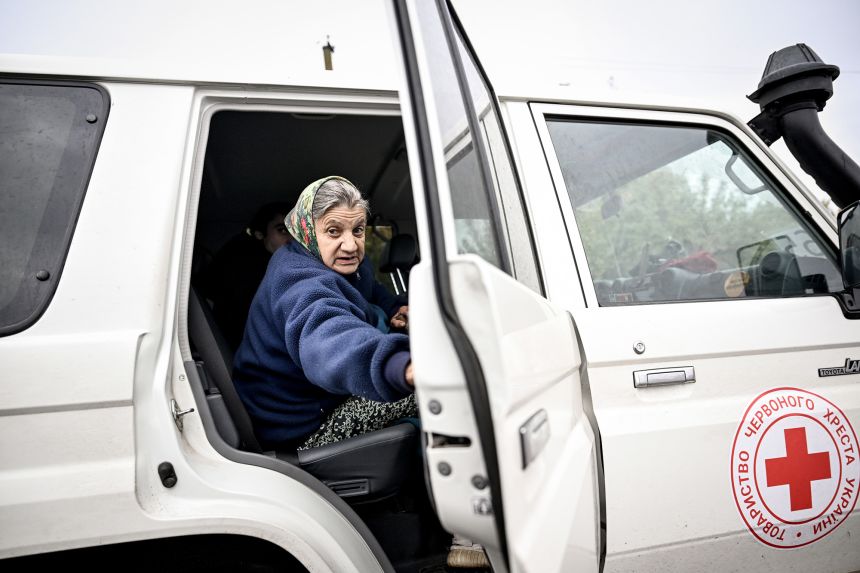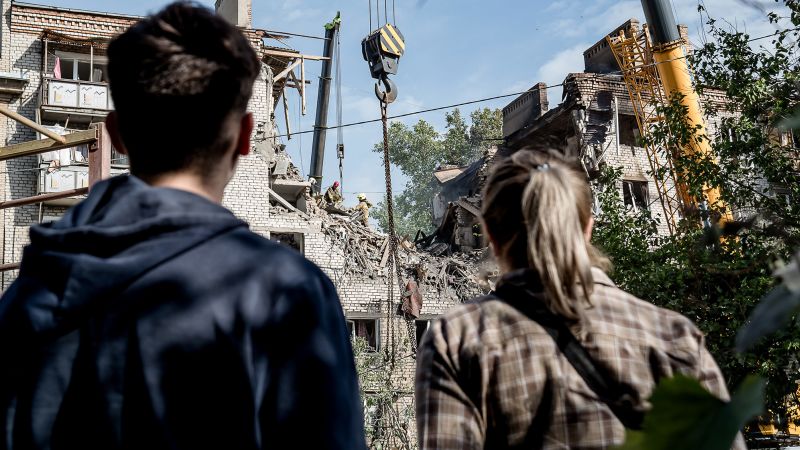A new United Nations report accuses Russia of committing crimes against humanity by attacking civilians and civilian infrastructure with drones, and committing war crimes by forcibly deporting people.
Drone attacks against civilians in areas along the front lines of the Russia-Ukraine war amount to a crime against humanity of murder, the report said. According to the UN Independent International Commission of Inquiry’s report on Ukraine, Russia also committed war crimes by intentionally attacking civilians and civilian targets.
Citing local authorities, the report states that more than 200 civilians have been killed in the Dnipropetrovsk, Kherson and Mykolaiv regions of southern Ukraine since July 2024. More than 2,000 civilians were reportedly injured in these areas during the same period.
Throughout the war, Russia has repeatedly denied accusations that it targeted civilians. CNN has reached out to the Russian Ministry of Defense for comment on the latest UN report.
The U.N. report said drone attacks investigated by the committee regularly targeted civilian homes and infrastructure, including hospitals, humanitarian sites, electricity facilities, and schools. The commission found that these attacks were “deliberate and part of a coordinated policy to drive civilians out of these territories.”
It concluded that the attack “spread fear among the population and made civilian life intolerable.” The report said people were evacuated from the areas where attacks were most prevalent, leaving some areas “almost completely empty”.

In some cases, only people with limited mobility, the elderly, caregivers and those without means of leaving their homes are left behind, the report said.
The commission did not blame individuals for the crimes it documented, but generally blamed the “Russian military” or “Russian authorities.”
CNN has reported on countless drone attacks on Ukrainian civilians since the 2022 Russian invasion.
Over the past month, northern Ukraine’s Chernihiv and Sumy regions have come under frequent attack, leaving many people without power as temperatures get colder.
In August, a key bridge between Kherson’s island of Korabel and the main city was damaged in a wave of airstrikes, triggering widespread efforts to evacuate the estimated 1,800 Ukrainian civilians still living there.
Natalia, a resident of Antonivka in Kherson region, who asked to remain anonymous for security reasons, told CNN last October that drone attacks in her suburb made it impossible for her to leave her home. “It’s like a safari for us,” she said of the drone strikes.
People interviewed in the UN report said they were sometimes monitored, followed, and even chased by drones as they went about their daily lives.
“Victims and witnesses stated that at the time the drone struck their home, they were engaged in normal activities such as spending time in their yards, gardening, caring for animals, taking out trash, and parking their cars,” the report said.

Russia also committed a war crime by illegally expelling civilians from occupied territory in Ukraine, including Zaporizhzhya Oblast in the country’s southeast, the commission of inquiry found.
The report said these deportations often took place on very short notice or without notice, and people were not given the opportunity to pack their belongings or talk to their families before being deported.
According to the report, in 2022 and 2023, a large number of adult civilians were forcibly deported from the Russian-occupied region of Zaporizhzhia to Ukrainian-controlled territory.
The report said they were accused of “failure to cooperate, engage in activities deemed destabilizing, or take pro-Ukrainian positions” and were made to walk 10 to 15 kilometers (approximately 6.2 miles to 9.3 miles) from Russian-occupied territory through “an operational zone with mines and trenches” within Russian-occupied territory, “while hearing the sounds of gunfire and artillery fire in the vicinity.” Some civilians are said to have gone missing after being deported.
The commission found that people were subject to “arrest, detention, various forms of violence (sometimes including torture), searches (and) confiscation of documents and property” before they were forcibly removed or deported.
The Russian government has long been accused of forcibly deporting Ukrainian children from Russian-occupied territories in Ukraine. These transfers are primarily to Russia.
In March 2023, the International Criminal Court issued arrest warrants for Russian President Vladimir Putin and Russian official Maria Rybova-Belova on suspicion of ordering the deportation of Ukrainian children to Russia, a war crime. At the time, the Kremlin condemned the ICC’s actions as “outrageous and unacceptable”, saying Russia did not recognize the court’s jurisdiction.

